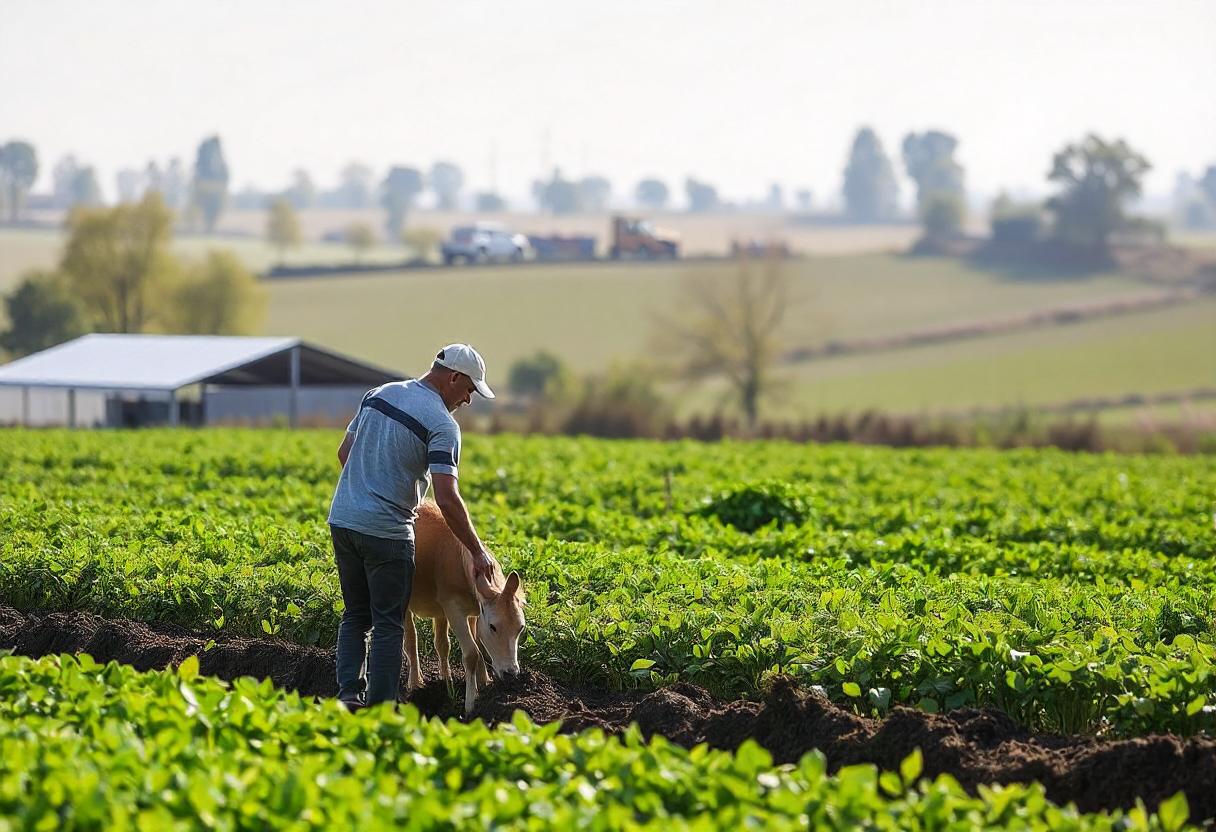
Modern farming practices have undergone significant transformation over the past few decades, driven by advancements in technology, shifts in consumer demands, and a growing awareness of environmental sustainability. This article explores the various aspects of modern farming practices, from technological innovations to sustainable methods, and their impact on agriculture and society.
1. Technological Advancements
a. Precision Agriculture
Precision agriculture is a cutting-edge farming practice that utilizes technology to monitor and manage crop production with high accuracy. Key components include:
- GPS Technology: Allows farmers to map fields and track crop health and soil conditions with remarkable precision.
- Drones: Used for aerial surveillance to assess crop health, monitor irrigation, and even apply fertilizers and pesticides.
- Sensors: Deployed in soil and plants to provide real-time data on moisture levels, nutrient content, and other vital parameters.
b. Automated Machinery
Automation in agriculture has revolutionized traditional farming tasks:
- Tractors and Harvesters: Modern tractors are equipped with advanced GPS systems and automated controls to optimize planting, plowing, and harvesting processes.
- Robotics: Robots are used for tasks such as planting, weeding, and harvesting, reducing the need for manual labor and increasing efficiency.
c. Data Analytics
Big data and analytics play a crucial role in modern farming:
- Farm Management Software: Helps farmers make informed decisions by analyzing data related to crop yields, weather patterns, and market trends.
- Machine Learning: Utilized to predict crop performance, optimize resource use, and manage risks.
2. Sustainable Farming Practices
a. Organic Farming
Organic farming emphasizes the use of natural processes and materials to cultivate crops. Key principles include:
- No Synthetic Chemicals: Organic farmers avoid synthetic pesticides and fertilizers, opting for natural alternatives.
- Soil Health: Practices such as composting and crop rotation are employed to enhance soil fertility and structure.
b. Conservation Tillage
Conservation tillage is designed to reduce soil erosion and maintain soil health:
- Reduced Tillage: Minimizes soil disturbance, preserving soil structure and organic matter.
- Cover Crops: Planted between main crops to protect and improve soil health.
c. Integrated Pest Management (IPM)
IPM is an environmentally friendly approach to pest control:
- Biological Controls: Uses natural predators or parasites to manage pest populations.
- Cultural Practices: Involves crop rotation, planting pest-resistant varieties, and other strategies to minimize pest issues.
3. Climate-Smart Agriculture
Climate-smart agriculture focuses on adapting farming practices to mitigate and adapt to climate change:
a. Water Management
Efficient water use is critical for sustainable farming:
- Drip Irrigation: Delivers water directly to the plant roots, reducing waste and improving efficiency.
- Rainwater Harvesting: Collects and stores rainwater for agricultural use, reducing reliance on external water sources.
b. Carbon Sequestration
Agricultural practices that capture and store carbon dioxide can help combat climate change:
- Agroforestry: Integrates trees and shrubs into agricultural systems, enhancing carbon storage and biodiversity.
- Soil Management: Practices such as no-till farming and cover cropping improve soil carbon sequestration.
c. Climate Resilience
Farmers are adopting strategies to build resilience against climate-related challenges:
- Drought-Resistant Crops: Developing and planting crop varieties that can withstand extreme weather conditions.
- Climate Forecasting: Utilizing weather forecasts and climate models to plan planting and harvesting schedules.
4. Biotechnology and Genetic Engineering
Biotechnology and genetic engineering have significantly impacted modern agriculture:
a. Genetically Modified Organisms (GMOs)
GMOs are engineered to enhance desirable traits in crops:
- Insect Resistance: GMOs can be modified to produce proteins that deter pests.
- Herbicide Tolerance: Enables crops to withstand herbicide application, improving weed control.
b. CRISPR Technology
CRISPR is a revolutionary gene-editing tool:
- Precision Editing: Allows for precise modifications to the plant genome, potentially improving yield, disease resistance, and nutritional content.
c. Synthetic Biology
Synthetic biology involves designing and constructing new biological parts:
- Bioengineered Crops: Creation of crops with enhanced traits, such as improved nutrient content or resistance to environmental stressors.
5. Economic and Social Implications
a. Economic Benefits
Modern farming practices offer several economic advantages:
- Increased Efficiency: Automation and precision farming reduce labor costs and improve productivity.
- Higher Yields: Advanced technologies and genetic improvements contribute to greater crop yields and profitability.
b. Social Impacts
The adoption of modern farming practices has broad social implications:
- Rural Development: Technological advancements create new job opportunities and drive rural economic development.
- Food Security: Enhanced productivity and sustainability practices contribute to global food security.
c. Challenges
Despite the benefits, modern farming practices face challenges:
- Cost: High initial investments in technology and equipment can be a barrier for small-scale farmers.
- Environmental Concerns: The use of GMOs and certain technologies raises concerns about long-term environmental impacts.
Modern farming practices represent a fusion of technology, sustainability, and innovation. By leveraging advancements in precision agriculture, automation, biotechnology, and climate-smart strategies, farmers can improve productivity, enhance environmental sustainability, and address global food security challenges. However, balancing these advancements with economic and environmental considerations remains crucial for the future of agriculture.